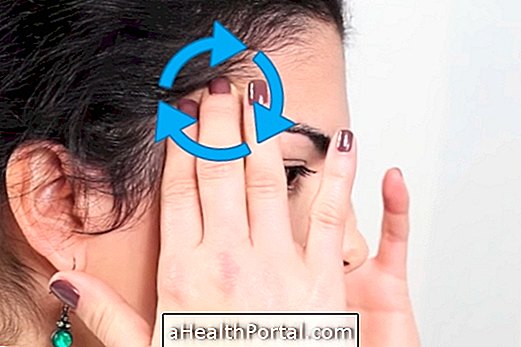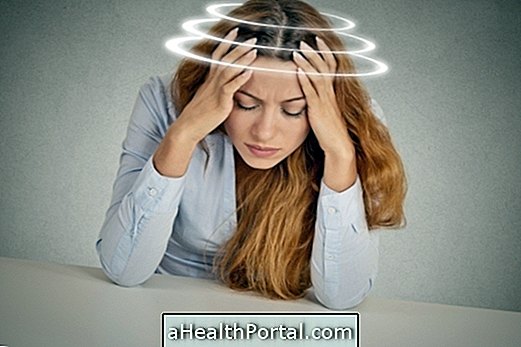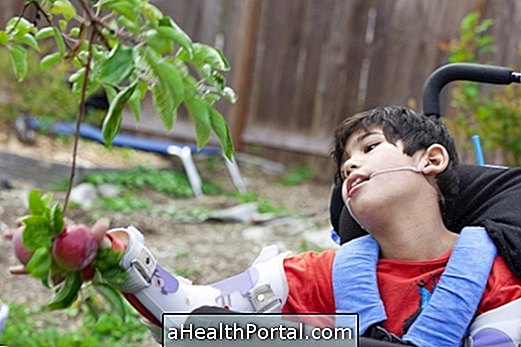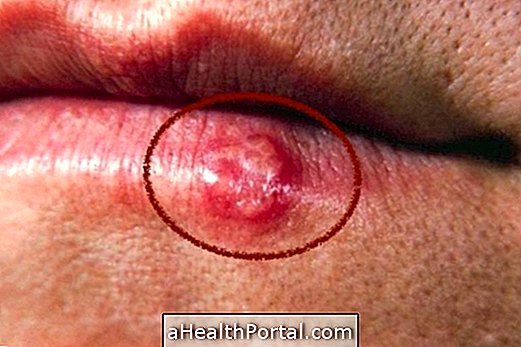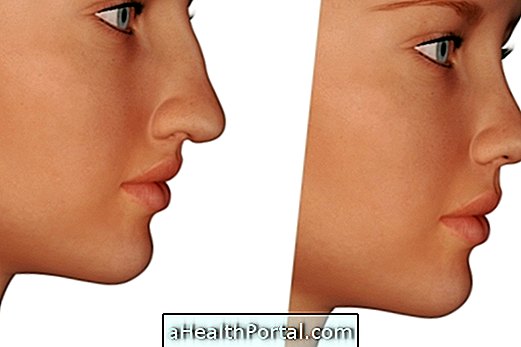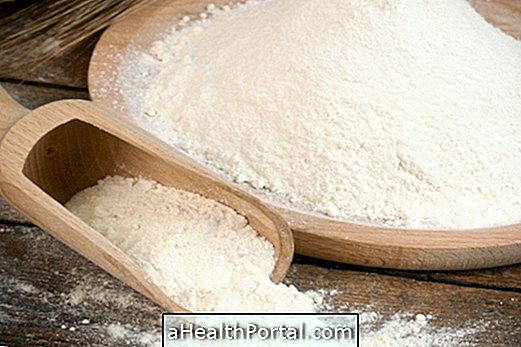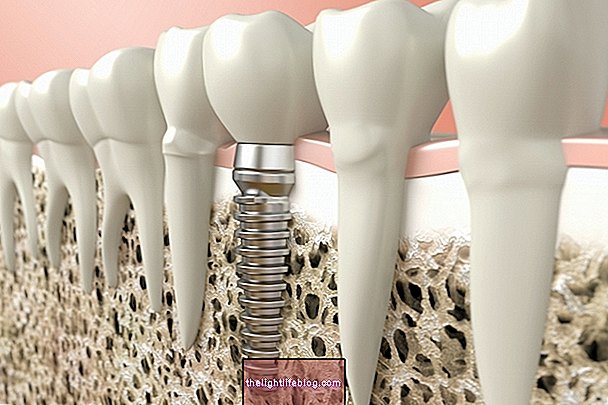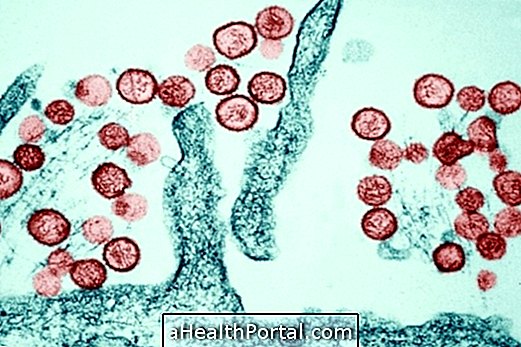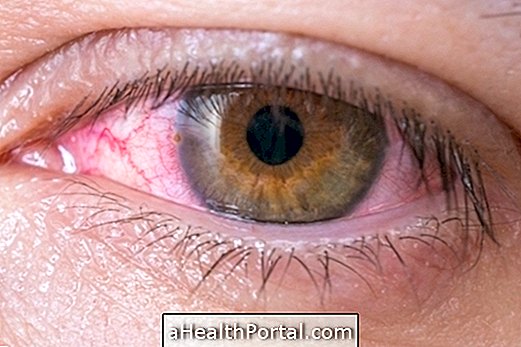Labyrinthitis is an inflammation of the ear that affects the labyrinth, a region of the inner ear responsible for hearing and balance. This inflammation causes dizziness, vertigo, lack of balance, hearing loss, nausea and general malaise and appears more easily in the elderly.
This disease has been cured when treated from the start, and its treatment usually involves taking medications, physical therapy and performing an anti-inflammatory diet to help reduce inflammation.
Symptoms that may indicate Labirintitis
Some symptoms that may indicate the presence of an inflammation of the inner ear include:
- Constant headache;
- Dizziness and vertigo;
- Loss of balance;
- Loss of hearing;
- Ringing in the ear;
- Vomiting and nausea;
- General malaise;
- Feeling of fainting;
- Anxiety;
- Sensation of tension in the muscles of the face;
- Involuntary eye movements.

These symptoms can appear at any time, and can persist for minutes, hours, days or weeks, depending on the person to person. In addition, symptoms tend to worsen or worsen in very bright or noisy environments.
Main causes of Labirintite
Labirintite is a disease that can have several causes, including:
- Ear infection;
- Gripes or colds;
- Head trauma;
- Side effects of medications;
- Brain tumour;
- Hypertension;
- Hyper or hypothyroidism;
- Hyper or hypoglycemia;
- High cholesterol;
- Anemia;
- Allergy;
- Temporomandibular joint dysfunction - TMJ;
- Neurological diseases.
The onset of labyrinthitis is also closely linked to aging, as it is a problem that is more common in the elderly but may also occur in young people. In addition, other factors such as excessive tiredness, fatigue, excessive stress or abuse of alcoholic beverages can also trigger the onset of this inflammation.
How is the treatment done?
The treatment for labyrinthitis consists of ingestion of drugs for labyrinthitis, diet and physical therapy to treat and reduce inflammation, and improve balance problems.
1. Used Remedies
The remedies used to treat labyrinthitis may include:
- Vasodilators such as Atenol or Adalat (Nifedipine) to improve blood circulation;
- Remedies that treat dizziness and vertigo such as Ondansetron, Betahistine or Monotrean.
- Remedies that reduce nausea such as Metoclopramide or Domperidone.
In addition to these remedies, the doctor may recommend the use of other medications because the treatment depends on what is causing the inflammation.

During treatment there are other precautions that prevent the worsening of symptoms such as avoid sudden position changes and very bright places, for example.
2. Anti-inflammatory feeding
Anti-inflammatory food can be a strong ally in the treatment of Labirintite because it aims to reduce the production of substances in the body that stimulate inflammation. Thus, it is recommended:
- Avoid foods that increase inflammation such as sugar, canned, yellow cheeses, chocolate, processed meats, cookies, cakes, salt, soft drinks, fast food, alcoholic beverages or ready-made and frozen food.
- Consume anti-inflammatory foods like garlic, onion, saffron, curry, omega-3 rich fish such as tuna, sardines and salmon, orange, acerola, guava, pineapple, pomegranate, cherry. strawberry, chestnut, walnut, avocado, broccoli, cauliflower, ginger, coconut oil, olive oil and seeds like flax, chia and sesame.
- Drink teas to maintain hydration and control nausea and vomiting. Some teas with this effect include ginger tea or basil tea, for example.
This type of food effectively combats inflammation as it increases the levels of antioxidants in the body, thus decreasing inflammation. Here's how to make an anti-inflammatory diet in Anti-inflammatory food fighting diseases and helps you lose weight.
3. Physiotherapy
Physiotherapy sessions are also important in the treatment of Labyrinthitis as they will help to improve the balance problems associated with this inflammation. During the sessions, the physiotherapist will invest in the mobilization of the patient's head, so as to reposition the crystals present in the ear and thus, improve the balance.
Here are the exercises that can be done to end dizziness:

Why does Labyrinthitis occur in pregnancy?
Labirintite often appears during the gestation period, due to the hormonal changes that occur during this period and that cause fluid retention in the labyrinth. This retention of fluid causes inflammation and leads to an episode of labyrinthitis.
The symptoms experienced by the pregnant woman are the same and the treatment should also include taking medicines, an anti-inflammatory diet and physical therapy.
What is emotional labyrinthitis?
Emotional labyrinthitis arises when there are other problems such as anxiety or depression that lead to the onset of this inflammation. In these cases, besides the recommended treatment, it is indicated the accomplishment of psychotherapy, in order to treat simultaneously the existing emotional problems. Learn more about emotional labyrinthitis in Labirintite can be Emotional.
